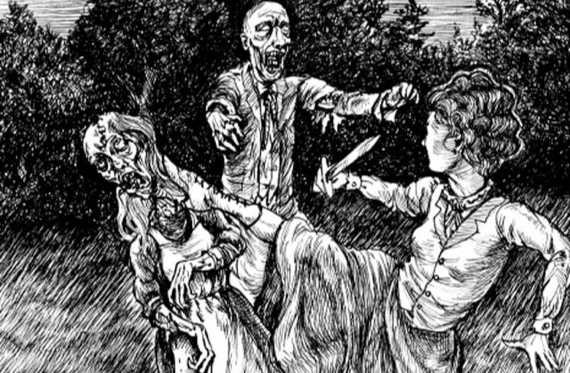It’s a gray, rainy day in Boston. The kind of day when you just want to curl up on the couch with a good book, a kitty, a cup of tea, and a fireplace.
Also, the kind of day when you really just don’t want to bother with anything.
In my world, I call them Bartleby Days.
Allow me to devolve into a girl for a few moments. I will be the first to admit that I’m usually fairly picky about my appearance. One of the many virtues I picked up from working as a Ballroom Dance instructor (story for another time, folks) is a certain finickyness about my appearance. I rarely leave the house without doing my makeup (certainly never when I know that I’m going somewhere… yes, class counts as “somewhere”), I at least put a token effort into my hair, and I’m never caught dead in requisite school sweats and ugg boots unless I’m walking around the corner to the drugstore on my day off (I get days off? Okay, afternoon off).
But one of the key functions of a Bartleby Day is the understanding that, no matter what you do, your hair is simply not going to co-operate.
(…I promise, this is going somewhere quasi-scholarly, bear with me for another moment…)
Growing up, I had many role models. Most of them were characters from books. Perhaps one of the most enduring role model of my young life was a certain Hermione Granger.
Here’s the awesome thing about being a frizzy-haired chick in academia: on Bartleby

Me this morning at my most unglamorous (hair Hermione style, sweatshirt, glasses, and *gasp* not even wearing lip gloss!)
Days, I can simply rock the Hermione look.
And I feel okay about that.
As a bookish chick, I find “rocking the Hermione look” comforting. Hermione is a great role model. She’s never afraid to be herself (even when that’s not the most popular thing to be), she’s strong enough to not hide behind anyone else, she’s wicked smart, and she always (if indirectly) manages to be the hero. Harry Potter wouldn’t have gotten anywhere without Hermione proving, once more, that it takes a woman to truly be able to accomplish anything.
Geek girls rule the world and, today on the most Bartleby of days, I wish to salute a few fictitious geek girls who have made my life a better place:

Seriously... get me a library like this, and I'll happily skip about your house singing songs as your trophy wife
* Belle from Disney’s “Beauty and the Beast”. Say what you want about Disney (it’s probably true), but a brunette heroine who is outcast from society because, despite the fact that she’s pretty, she’s simply too nerdy to get along with the popular girls? A heroine that requires (instead of the requisite gift of roses) a LIBRARY to be wooed? A heroine who’s more interested in a bookstore than a pair of rippling pectorals? Yep. If I were a Disney Princess, I’d be Belle. Hands down. Talking clock and teapot and everything.
* Mina Harker from Bram Stoker’s Dracula. Despite her degradation into generic pretty female love interest in just about every Dracula re-telling, Mina was actually pretty badass in the original. She was the secretary for what became known as “the crew of light” and so kept all the notes and things tidy. Without her, the fictitious narrative never would have come to be. It was Mina’s work in compiling notes, letters, diaries, that made the final volume. Okay, so maybe the boys didn’t let her go out on the “dangerous missions”, but what do you want from Victorian men? Mina bound the group together and it was her efforts which ensured that they were able to accomplish their goals and defeat the mighty beast. Perhaps more importantly, it was her efforts which ensured that documentation of this even survived. Boo-friggen-yah.
* Jo March from Louisa May Alcott’s Little Women. When I was a kid, I would read books and eat apples because that was Jo’s favorite thing to do. Jo reads and writes to an extreme which makes her unladylike (much like the harried author of this blog). Despite having her nose stuck in a book, Jo also manages to bag the guy at the end and balance being a woman with being ambitious in the nineteenth century. Yea… I may identify a little bit with this clumsy, tom-boyish, not-as-pretty-as-her-sister literati… just a little.
* Elizabeth Bennet from Jane Austen’s Pride & Prejudice. Yes, I know, this book

Totally badass
comes up all the time, but it’s because I LOVE LIZZY. Oh my god, if you could bottle Lizzy and sell her she’d be in my cabinets all the time. I’d bathe in her, I’d cook with her, I’d even spritz a little on my pillow every night. Maybe it’s a stretch to call Lizzy a literati (she’s not really depicted as reading any more than any other strong heroine of the time), but she definitely is smart and (as such) I’m going to label her as a nerd. She’s clearly focused her time on something besides painting, drawing, playing music, and sewing (she says so herself), so let’s assume for the sake of my list that that something is reading? Please? …plus… she fights zombies…
This is by no means a comprehensive list, just a selection of my favorites. Hopefully it’ll help you get through your gray dreary day.
And remember; Bartleby days happen to everyone. If the weather (or extenuating factors) have put you in such a slump as this, just think: What would Hermione Granger do?
Also… watch this.
[youtube http://www.youtube.com/watch?v=tgbNymZ7vqY]
I know that always makes me feel better.

